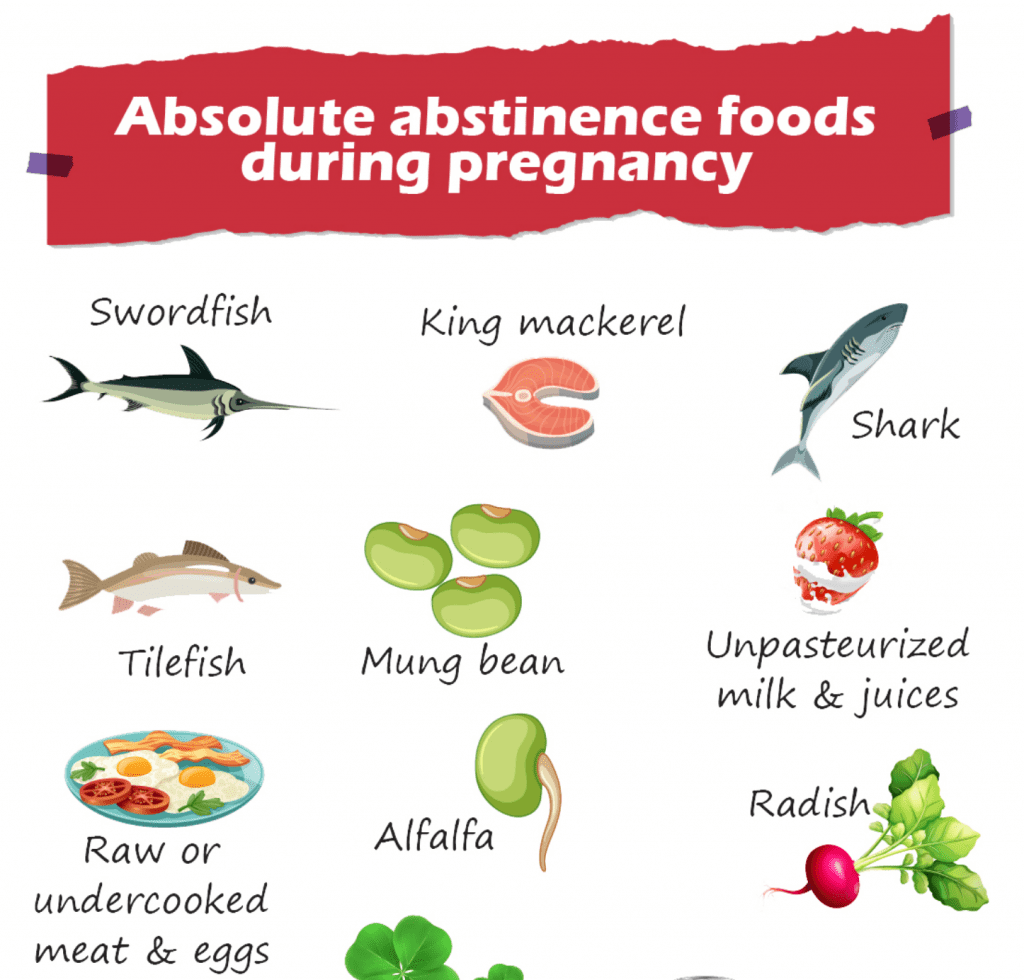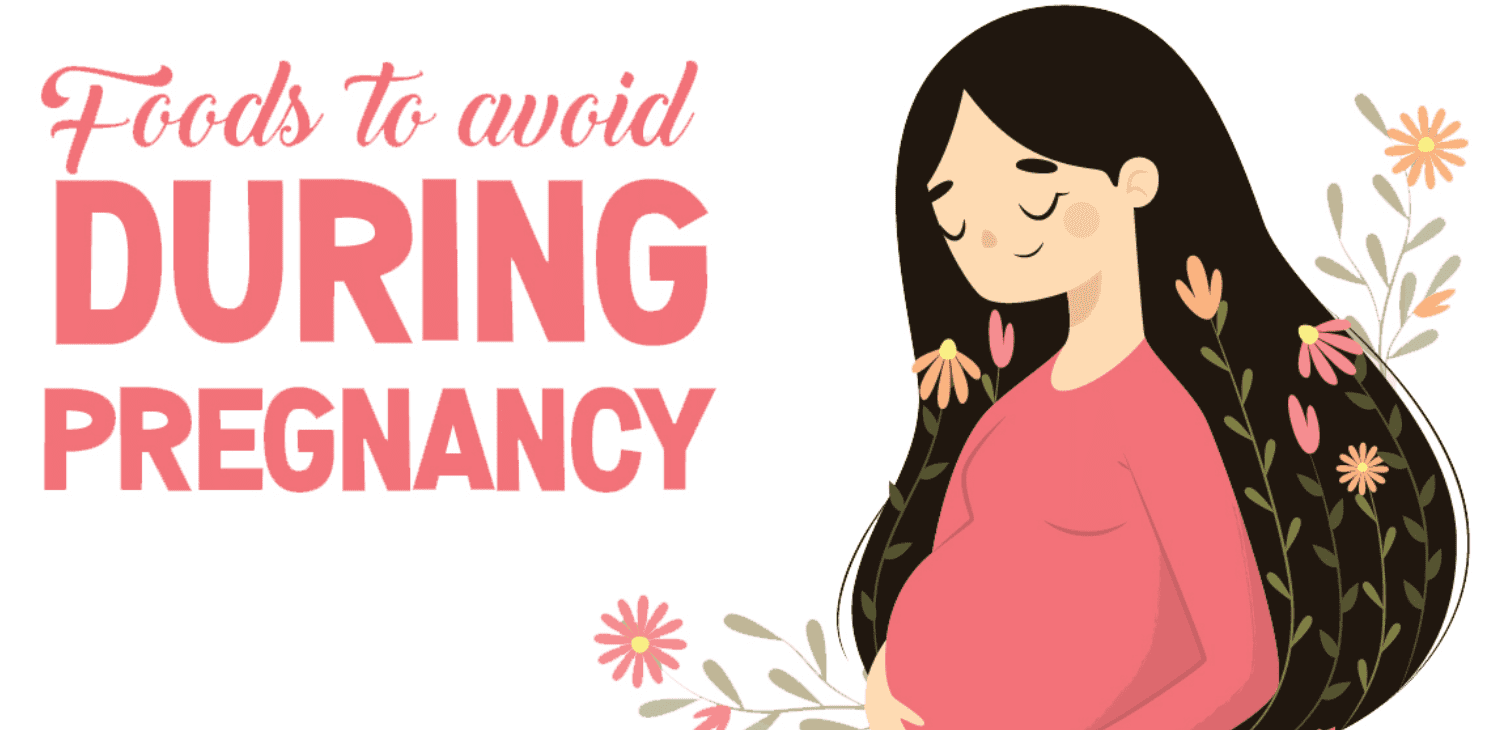We understand it is hard to keep your hands off these delicious delicacies, but for a healthy pregnancy journey, you should avoid these foods for a safe pregnancy term.
The most unexceptional moment in women’s lives is pregnancy. To ensure a healthy journey, eating healthy is an essential part of the baby’s development.
Pregnancy cravings can be hard sometimes because you just crave for any mouth-watering dish and even go bonkers about it. Having to control your taste buds for nine months and still be extra careful about what you eat can be daunting.
What a woman eats during pregnancy can directly affect the health of her baby. Here are the foods you should avoid during pregnancy:
Unpasteurized Milk and its By-Products
Before consuming milk, pregnant women should boil it to kill germs and prevent disease-causing microbes that can harm your baby’s development. Even though milk is essential, it is crucial to take it pasteurized during pregnancy.
Papaya
Papaya can be dangerous to consume during pregnancy because it is believed to stimulate an abortion. Raw or unripe papayas have latex, a substance that stimulates uterine contractions.
Papaya has papain and pepsin, which restrict fetal growth. Hence, during pregnancy, it is essential to avoid raw and unripe papayas.
Fish and Seafood
Large fish have high mercury levels that can be harmful to you. High mercury content can cause damage to the nervous system and brain.
It is best for pregnant women to avoid consuming large fish like shark, tuna, walleye, swordfish, marlin, and so forth. If you must consume fish, we recommend choosing canned tuna instead because they have lower levels of mercury.
Opt for clean, freshwater fish with a low amount of mercury like salmon, shrimp, tilapia, etc. You can still get your omega-three fatty acids and be careful of the ways you can keep both you and your growing baby safe.
Pineapple
Pineapple contains bromelain, a compound that causes softening of the woman’s cervix, which could lead to premature labor or a miscarriage. If you must have pineapple, do it in small quantities to ensure a safe pregnancy.
Grapes
Pregnant women are encouraged to stay away from grapes, especially in their third trimester. Grapes can potentially hike up your body temperature leading to undesirable complexities.
Grapes contain Resveratol, a compound that has the potential to pose many difficulties by unbalancing a pregnant woman’s hormones. It can also cause stomach-related issues.
Eggplant
Eggplant is a typical food eaten mainly in most Indian households. It is considered useful for treating premenstrual and amenorrhea disorders. Pregnant women are advised not to consume eggplant while pregnant. However, it is safe to drink in little amounts.
Sesame Seeds
Dry sesame seeds were traditionally used as a drug for instigating an abortion. Sesame seeds can stimulate your uterine muscle, which could cause an expulsion of the woman’s fertilized ovum.
For the first 3-4 months of pregnancy, women are advised to avoid sesame seeds. However, it is safe to consume dry nuts like raisins, almonds, groundnuts, walnut, etc. in moderation.
Ajinomoto
Ajinomoto is commonly used in street food and is currently widely used as an ingredient in our households; Chinese food preparation includes Ajinomoto, and it is mostly preferred in Indian cuisine.
It is not safe to consume Ajinomoto during pregnancy because it can affect the fetus’ brain development. For the sake of the growth of the baby, best to stay away from it for the next nine months.
Refined Flour Products
During pregnancy, we recommend attempting to maintain a safe distance from refined flour products like noodles, pita, bread, pasta, pizza, cookies, etc.
It is also recommended to avoid packed and ready-made foods like sauces, pickles, chutneys, etc., because they have chemicals and preservatives to build the lifespan, which eventually harms the unborn baby.
Fenugreek and Fennel Seeds
You can use small quantities of fenugreek and fennel seeds for taste, but pregnant women should avoid taking it in large amounts consistently.
These seeds have high-levels of phytoestrogens that fortify uterine compression. They also help purify the uterus, stimulate menstruation protention, and boost milk production.
Alcohol
Pregnant women are advised to avoid alcohol. When alcohol is in the mother’s blood, it can be potentially transferred to the baby via the umbilical cord.
Heavy drinking during pregnancy has been linked with fetal alcohol spectrum disorders, conditions including physical problems, behavioral and learning difficulties in infants and kids.
We understand it is hard to keep your hands off these delicious delicacies, but for a healthy pregnancy journey, you should avoid these foods for a safe pregnancy term.
Visit https://www.childmode.com/ childmode.com to learn more about pregnancy and food.



Join the conversation!